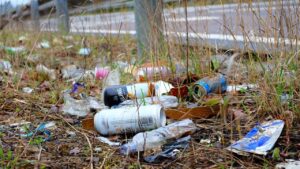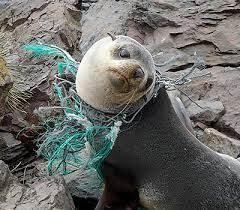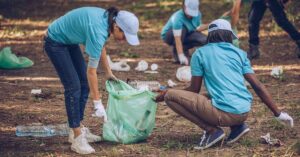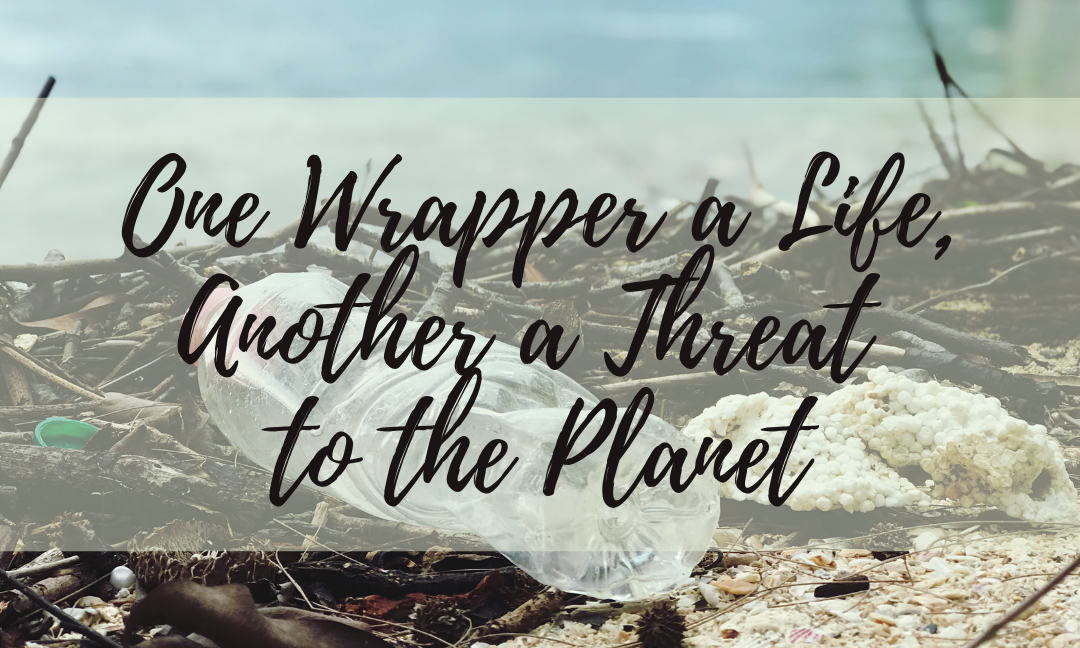Written by: Mehavi Jeyabalan
Littering is probably one of the most talked-about problems today. However, not much change has happened since it’s been an issue since the 1950s. There are still wrappers on the ground and cigarettes far from being in a waste bin. The more we ignore it, the more it pollutes us and the environment. Littering is considered too light an issue to many, so I’m dedicating this post to opening everyone’s eyes to how giant an enemy our waste is.
Main Causes
 Littering causes pollution that harms our environment. It releases chemicals and microparticles, which can cause many problems. These chemicals can get released into water sources and soil, leading to difficulties for humans and animals. Litter also plays a role in air pollution. When it’s burned in the open air, it releases toxic emissions. These emissions could cause health problems, reduce air quality and become a starting base for acid rain. So how would all this affect us?
Littering causes pollution that harms our environment. It releases chemicals and microparticles, which can cause many problems. These chemicals can get released into water sources and soil, leading to difficulties for humans and animals. Litter also plays a role in air pollution. When it’s burned in the open air, it releases toxic emissions. These emissions could cause health problems, reduce air quality and become a starting base for acid rain. So how would all this affect us?
In-Depth Look
Acid rain can cause respiratory problems or make them worse. Other than affecting humans, acid rain’s main target is the environment. It’s especially harmful to forests by being able to disintegrate minerals that trees need. It’s also capable of releasing aluminum into the soil, making it more difficult for trees to absorb water. Additionally, Acidic fog and clouds can take away nutrients from trees. The results of this are damage done by pests, viruses, and cold weather. Acid rain also lowers the pH levels of bodies of water, affecting aquatic animals and water sources. Yet this isn’t the end of it.
Impacts on Animals
 Littering goes as far as to kill animals. According to researchers, over one million animals die each year from consuming or getting entangled with litter. Plastic remains the current killer of animals everywhere, mainly marine animals. From statistics, over 100,000 aquatic animals drown due to trash getting disposed of into the ocean. Animals also get harmed from getting stuck in containers while searching for food, causing them to starve until death or suffocate when they can’t get the container off. Littering can restrict animals like fish from swimming and wound other animals, which leads to infections. After consuming litter, animals can get illnesses, starve, have passages blocked within the body or die.
Littering goes as far as to kill animals. According to researchers, over one million animals die each year from consuming or getting entangled with litter. Plastic remains the current killer of animals everywhere, mainly marine animals. From statistics, over 100,000 aquatic animals drown due to trash getting disposed of into the ocean. Animals also get harmed from getting stuck in containers while searching for food, causing them to starve until death or suffocate when they can’t get the container off. Littering can restrict animals like fish from swimming and wound other animals, which leads to infections. After consuming litter, animals can get illnesses, starve, have passages blocked within the body or die.
Ways you can help animals are cutting up plastic rings before disposing of them, washing out bins to get rid of food smells so that animals aren’t attracted to your waste. Recently, with Covid-19, people wear masks daily and throw them out constantly. Many end up in the water or cause animals to get entangled in them. To avoid causing more damage to our earth, we can throw away masks correctly into waste bins and cut the strings off of them so animals won’t get caught.
Coral Reefs Ruined
After the suffering of marine animals, coral reefs have begun to share the same burden. According to a study, coral reefs that are infected by plastic are 85% more likely to develop a disease compared to plastic-free coral reefs. The most common illnesses of coral are white syndrome, black band disease, and brown band disease. All of these can quickly kill coral and impact animals that depend on it.
Ways Humans are Impacted
Humans may not get affected like animals, but they still face a risk. From litter not being correctly thrown out, it breeds bacteria and diseases. Through direct or indirect contact, it can spread viruses, parasites and more. You can come into contact by touching or hurting yourself mistakenly on waste. Animals and insects can also transmit contaminants to humans after being in contact. Also, littering on the ground can cause people to have accidents (slipping on trash, car accidents, and high-rise littering can hurt someone passing by). Furthermore, chemicals that can be transferred to us from water supplies to animals we consume can cause immune system problems, cancer, and birth deficiencies.
Solutions

Even with these harmful effects caused by littering, we can still save ourselves and the environment. You can attend organized cleanups and increase the number of trash bins, but due to the Covid-19 outbreak, this isn’t a possible solution right now. However, there are other solutions. The best way to keep people from littering is to enforce laws and regulations that will stop them. You can achieve this by working with people in your community to make it possible. Another solution is to reduce the use of disposable items and checking if all your trash is secured when it’s left out for pickup. Importantly, littering is an issue that humans can fix by not throwing away our things into nature. Most humans litter due to carelessness, laziness, and not knowing how significant their impact on the environment is. We can help them change by educating them and changing their mindsets to not litter. Because if we don’t care for our planet, who will?
Sources:
https://www.texasdisposal.com/blog/the-real-cost-of-littering/
https://www3.epa.gov/acidrain/education/site_students/whyharmful.html
https://blogs.ntu.edu.sg/hp3203-2017-07/impacts-on-humans/
https://www.nature.com/articles/d41586-018-01239-3
https://trashhero.org/why-is-litter-a-problem/ (picture)
https://bettermeetsreality.com/plastic-pollution-on-land-faq-guide/ (picture)
https://www.greenmatters.com/p/trashtag-litter-cleanup (picture)


I like this web blog it’s a master piece! Glad I observed this on google.